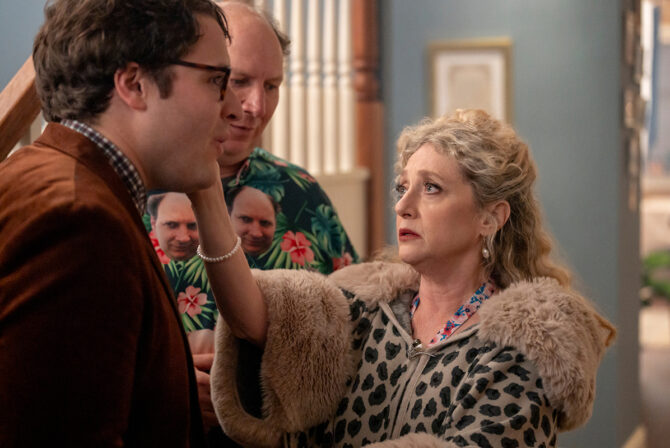I came out (again) as someone struggling with fertility about a month ago. I’d posted on Facebook that I was frustrated with my Reproductive Endocrinologist (RE) and that I loved my acupuncturist. A number of folks commented on my post, including a friend who suggested that I find another RE. We had an offline conversation and while I understood she was coming from a place of concern and love, I felt hurt and let down.
As anyone who is trying to conceive (TTC) will tell you, we are given a lot of advice on how to help fix our fertility woes. Like my friend, this advice comes from a place of good intentions, but often it’s not what we need to hear.
On the afternoon April 13, 2015 I peed on a First Response Pregnancy test and got a positive result. A dozen thoughts rushed into my head. I was elated. I was nervous. I was overwhelmed and I felt a bit of guilt knowing that so many of my TTC sisters were still waiting to see those two pink lines. Against all odds, a uterus riddled with fibroids, one functioning fallopian tube and approaching “advanced maternal age,” I was pregnant. I had a teeny tiny human growing inside of me. Four weeks later I watched an ultrasound tech’s face force a smile as she pushed the wand further and further into my belly trying to locate our baby. I squeezed my wife’s hand when they switched to an intervaginal ultrasound and felt relief for the split second I saw our little Bean. A few more minutes of scanning later and the tech said flatly, “there’s no heartbeat.”
My RE repeated it to me and followed it up with an, “I’m so sorry.”
It took one entire month from the day that we had that ultrasound for me to miscarry. I miscarried via two surgeries with rounds of Misoprostol between. I was crushed and friends who didn’t know what to say said things like, “At least it was early in the pregnancy.” “Now you know you can get pregnant.” “God has a plan.” “You’ll try again.”
I didn’t want to try again. I wanted to disappear. I fell into a deep depression and I became irrationally livid at every person who was able to have a baby for about six months.
Studies say that one in every four women experience miscarriage or pregnancy loss. Infertility affects 1 in 8 couples in the US and can be caused for a wide variety of reason— and in the case of unexplained infertility, no medical reason at all. I am one of the one in 4, we are the 1 in 8. We aren’t statistics, we’re human beings with feelings of hope, despair, anger, frustration and moments of extreme sadness.
Reproductive Endocrinologists will often see women as pathologies that they’re meant to fix. Friends and family often don’t know how to talk about it fertility or pregnancy loss. As a result, the process is often a lonely one. That’s why after my miscarriage and subsequent TTC journey I started talking about fertility and pregnancy loss in face-to-face conversations with anyone who would listen and on social media. I wouldn’t be exaggerating when I say that every time I had these conversations the person on the other end gave me a bit of well-meaning, but unsolicited advice:
“Have you tried, X?”
“I read that consuming gluten is really bad for fertility.”
“Just relax and it will happen.”
“Have you thought about adopting?”
“Why doesn’t your wife try?”
Here’s the thing, folks that are TTC have tried all of the things. TTC couples in heterosexual relationships have had sex in every imaginable position, read all of studies and articles, eaten all of the foods, been on all of the medicines, seen all of the specialists. We get abdominal massages, acupuncture. We’ve taken herbs and tinctures and, frankly it’s impossible to just fucking relax when you’re draining your savings—borrowing from friends and family just to have a child. On top of it all, there is no one procedure that will guarantee a child.
People aren’t sure what to say. Several articles have been written about what not to say to people and couples who are TTC. I truly believe that as Americans we have a hard time with discomfort and pain. We want to fix things. We have a really hard time simply listening.
It’s an uncomfortable act to listen, but when I talk about my struggles with infertility and pregnancy loss I’m not looking for someone to help me fix it, I’m looking for someone to hear me.
After listening, there are some things that I would love to hear from a friend (or stranger) about TTC and pregnancy loss.
• This sounds incredibly hard. Is there anything that I can do to give you comfort right now?
• I’m here for you whenever you need to talk.
• Thank you for sharing your struggles.
• I’m thinking of you.
• I hear you.
• I see you.
My miscarriage was two years ago. We took a year off trying to conceive so that I could forgive my body and learn to trust it again. It was during a day of silence at a Yoga Retreat at the beginning of this year that I actually believed all of the mantras I’d been reciting since my miscarriage. I opened my journal and poured out my anger, my frustration, my fear, my doubt. I committed to living my life fully and loving myself.
These day when a friend announces their pregnancy I feel joyful, though I’d be lying if I said that a small part of me feels a longing, a wish that it was me. But nowadays, the joy sometimes overshadows the longing. We’re trucking along with our RE (and our acupuncturist) taking the tinctures and herbal supplements to balance out the western medicines. I talk about fertility a lot and think about my miscarriage almost every day. Disappointment greets me every month my period comes, but I try to remain hopeful that we’ll see those two pink lines again.
It is in the talking and listening that I do the work of healing.







